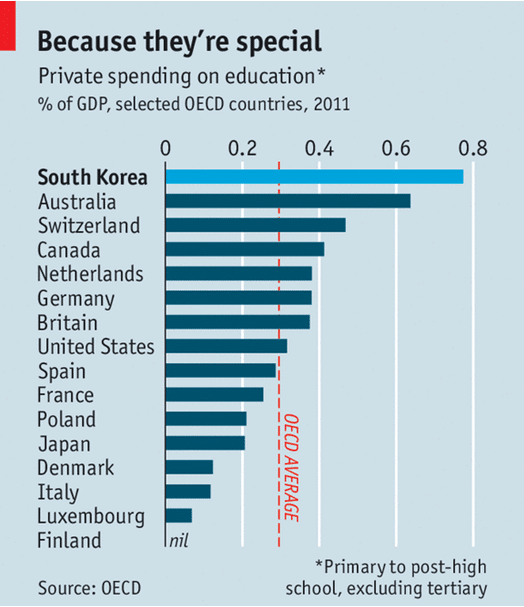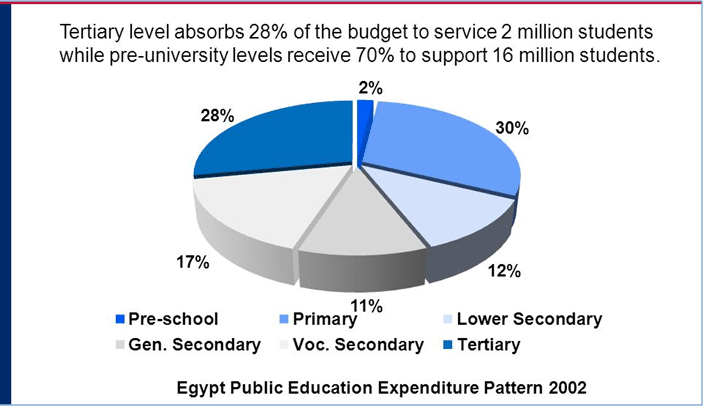- Posted on
- Unique Submission Team
Best Marketing Entry for Hertfordshire Business School
The cultural variable is an essential factor which leads marketing across various culture to a significant place. Equating the attitude of people of any definite cultural group is regarded as a critical approach.
It is hard to stereotype the approach which the marketers use to create the perception about any particular culture. Consumers are provided with the right picture of the product or service, which can fulfil their needs (Abdelzaher, et al., 2019).
The cultural variable is tough to operationalize and personalize when it is working within a marketing environment. Companies have to be abiding by the national rules and needs of the people aligned with the area which company is focusing on serving.
As for the educational organizations, they must have the capability as well as the resource, which will help to create a sustainable educational environment. Higher educational companies are focusing on increasing the number of educational products that will cater to the masses (A.Kreitz, 2008).
Strategic direction is widely used by these educational companies to stay relevant to the cultural market. It assists in the implementation of international and cultural marketing principles with the promotional and elements of integrated marketing, which can generate efficient students.

Image 1: Multicultural marketing
(Source: Horstmann & Markusen, 2018)
The report undertaken will focus on highlighting the market entry of Hertfordshire Business School in South Korea or Egypt. Strategic tools like PEST and SWOT analysis will be conducted.
An action plan will be drawn to create a viable market strategy for the organization.
Hertfordshire B School has focused on expanding its capacity by making a market entry in foreign soil. Two areas have been chosen for the location and establishment of the overseas entity.
The company is offering business-related educational courses for students who are from the foreign market. Various subjects provided by the institute are management, tourism, digital marketing, business management, economics and various other subjects(Verbeke, et al., 2019).
Students will receive additional facilities from the institute like personal as well as professional development opportunities. The two chosen markets for the educational institute are either Egypt or South Korea.
As for the facilities, the company can provide various facilities for the student, including the scope of the future, as well as proper placement, which will ensure an excellent track record in professional life.
The PESTLE analysis will be conducted to identify the macro-economic aspects. The evaluation will help to design a favourable marketing plan which will assist in drafting an international marketing draft (Williams & Williams, 2019).
The cultural specifications of South Korea and Egypt are needed to be analyzed. Hofstede’s cultural analysis results of both countries are given below.
| Cultural Specifications | South Korea | Egypt
|
| Masculinity and Feminism | 39 | 45 |
| Indulgence | 29 | 4 |
| Long term orientation | 100 | 7 |
| Individualism | 18 | 25 |
| Power Distance | 60 | 70 |
| Uncertainty Avoidance | 85 | 80 |
Table 1: Hofstede’s Cultural Model
(Source: Block& Walter, 2017)
South Korea is a country that has a rough political past. Currently, it has stabilized the political situation as well as the economy in the market. South Korea’s political framework is designed by a presidential representative who works for the democratic republic(Block & Walter, 2017).
The national is regarded as an educated one since 70 percent of the population has completed tertiary education.
The statistics reflect an excellent opportunity for an educational institution as more students apply every year for higher studies. The political condition highly favours the Hertfordshire Business School, which can collaborate with other institutes in South Korea.
The social-cultural aspect also encourages the growth of business for Hertfordshire with a strong networking ability (BEGEÇ, 2013). The rate of unemployment is relatively low, and students would be able to receive a better placement with assurance.
As per South Korea’s high alignment towards upholding human rights, the business school has to ensure that the students receive seamless education.

Image 2: South Korea on Private Education
(Source: Block & Walter, 2017)
Furthermore, the South Korean market has a 10 percent tax, which signifies a high growth rate for the country in the future. Korea is known for its technology, productive, innovative approach, and creation (Allman, et al., 2019).
The country has a state of art telecommunication sector that can provide ample scope of placement for the students of Hertfordshire business school in management or other posts.
As the South Korean government is focused on providing technological benefit and investment for institutions like Hertfordshire, the institute can gain a considerable competitive advantage for the business (Benischke, et al., 2020).
In terms of financial growth, South Korea is way ahead of Egypt. The B-school can operate within the market without any issue of economic uncertainty.
South Korea has a suitable taxing policy with separate regulations for a corporation, and it will provide a stable legal environment for Hertfordshire Business School.
Egypt, whereas it is not among the popular destination where Hertfordshire Business School would like to operate. As a country, Egypt is transcontinental at its core and ranks 15 among the most populous countries (Blackburne & Buckley, 2019).
The corporate tax charged by Egypt is 22.5 percent and reflects that it has a high rate of taxation compared to South Korea.
Egypt has a high rate, and it will burden HBS with the higher establishment cost while entering the market and establishing a business.

Image 3: Education expense in Egypt
(Source: Blackburne & Buckley, 2019)
The political scenario of Egypt does not support an overseas educational institution like HBS.
There is a high rate of unemployment, which indicates a low absorption capacity of the students once they finish higher studies. HBS will not be able to stay relevant, considering the condition of the market (Huang & Crotts, 2019).
Crime rate and illegal activities are prevailing in Egypt, which negatively affects the profitability of the country. Egypt is also facing a war between the military as well as a democracy with the Nile River.
HBS will face these complex situations while it is trying to establish a business in Egypt in terms of expanded operation.
SWOT analysis of Hertfordshire Business School
HBS has its strength lies in various subjects that are offered by the institute. It can easily attract multiple types of students within the globe. HBS is known for its sufficient capability of maximizing the networking approach (Shareef, et al., 2017).
The ability helps the students in collaborating with the various educational exchange program, internships, and pre-work training. The programs are capable of preparing students for a professional environment.
Nevertheless, weakness involves a lack of awareness of the institution within the educational atmosphere.
HBS has to focus on aggressive marketing opportunities to create awareness about the brand among the students. In a market like South Korea, competition is very high as various competitive universities like Pohang University of science and technology functions (Bose & Biswas, 2018).
HBS, as an institution, has to provide adequate education, which is scientific and up to date.HBS has a boundless opportunity to utilize disruptive technology along with digital learning and education system.
It will help the organization to integrate, collaborate, and use advanced digital technology with the educational system with HBS. Use of modern approach in the educational training which will initiate a competitive relevance among the competitors.
Hertfordshire’s business school is planning to expand its operations overseas, and South Korea is the most lucrative country for it.
The country is among the leading educational destination, which will help an organization like HBS and its stakeholders to grow and expand (Gao, 2017).
The HBS institution has to apply for standardization and adaptive strategy for functioning in South Korea. Standardization is an effective strategy in the global scenario where the company will identify the entire world as a single market with a meaningful variation.
The product or the courses which are created by Hertfordshire Business will fit the needs of student across the globe. HBS has to rely on aggressive marketing in South Korea to raise the awareness of the people about its B School and subjects they will offer for the students in higher studies (Buckley, et al., 2017).
The strategy is applicable for HBS as the importance of B school in higher studies and other subjects offered by HBS is necessary for any student seeking higher study in any country. Besides, HBS does not have to prepare for multiple approach marketing as the same approach can be used in any country.
Hence, HBS will be able to save a considerable cost of marketing and reduce excess expenses. Since the legal and political environment of South Korea is in favour of an educational institution, the standardization strategy can be easily applied for operational success.
As per the market in South Korea, it will be able to provide consistency in the programs which are offered by HBS along with the syllabus and the subjects offered.
Besides, saving the costs of marketing the HBS can introduce its courses with competitive pricing, which will attract students (Horstmann & Markusen, 2018). Therefore, standardization strategy can bring ample advantage to HBS and its entry in the South Korean market.
The following identified strategic outline is an adaptive strategy that can provide a further edge to Hertfordshire Business School.
Adaptive marketing strategy helps the marketers to adjust the products according to the situation which meets the need of the customer in a particular country. Hence, the brand is focusing on the customers and giving preference to the specific market, their culture, and affinity.
As HBS is new to the South Korean market, it can adjust the courses offered and the student’s program to fit more South Korean students (Buckley, et al., 2017).
The adaptive strategy will help HBS to focus on the domestic market in South Korean. Besides a secure brand communication will be employed to promote the product or service, which can create a lasting impression among the people.
The HBS marketers can further concentrate on using the Ansoff matrix for entering the market with full aggression. Developing a product the diversification strategy will engage HBS in creating the state of the art educational models for the North Korean Students.
As a new strategically product, the B school can introduce a new professional course that directly aligns with the job market.
Furthermore, a market penetration strategy can be employed to add new and updated education courses to consolidate the knowledge prospects in HBS.
The institution will enjoy widespread acceptability in the students and undertake online programs from any country (Bose & Biswas, 2018). HBS can utilize SMART goal strategy which will help the company to develop a tool which will invite practical outcome.
The country and its strength determine what strategy will be used by the marketer of the organization. HBS has to choose South Korea ahead of Egypt due to its unique business situation and macro-economic environment.
In assistance with the country, HBS can develop a sustainable educational institute within the nation (Buckley, et al., 2017). The infrastructure of the country is providing a practical situation that will allow running an ethical educational institute.
The political, as well as the legal scenario of the country, will help the company in regards to stability and deal with the law while doing business.
The corporate taxes and favourable foreign business environment will help the company to conduct good business with reduced costs.
The per capita income in South Korea is reflecting that the people can afford to hire education on competitive subjects, which will help to stay relevant in the job market (Abdelzaher, et al., 2019).
The students will be able to land a high salary job. The business destination is suitable as the diverse students will get an excellent opportunity to study, and it will reflect in creating efficient future leaders.
The strategy deployed by HBS will implement the function of marketing irrespective of the culture involved.
FDI or Greenfield Foreign Investment will help HBS to improve their financial situation and investment in opening new operations abroad. Direct ownership will HBS attract various educational infrastructure and associate them, forming universal guidelines.
Hence, a partnership with Greenfield Foreign Investment and HBS will be a profitable one expanding the scope for business and acquiring the financial strength to run an organization at a competitive market.
The report focuses on various aspects of marketing in a different culture. It highlights the evaluation and analysis needed for an organization to enter the market.
A comparative analysis has been done between South Korea and Egypt. The HBS institute is looking to expand operations overseas, and South Korea has been identified as the best destination.
The capabilities of HBS are aligned with the SMART goals, which will help the institution find a firm foot in the market. Egypt and its market situation will eventually harm the business of HBS.
References
A.Kreitz, l., 2008. Best Practices for Managing Organizational Diversity. The Journal of Academic Librarianship, pp. 101-120.
Abdelzaher, D., Fernandez, W. D. & Schneper, W. D., 2019. Legal rights, national culture and social networks: Exploring the uneven adoption of United Nations Global Compact. International Business Review, pp. 12-24.
Allman, H. F., Hewett, K. & Kaur, M., 2019. Understanding Cultural Differences in Consumers’ Reactions to Foreign-Market Brand Extensions: The Role of Thinking Styles. Journal of International Marketing, pp. 1-21.
BEGEÇ, S., 2013. Effective Diversity Management Initiatives. International Review of Management and Marketing, pp. 63-74.
Benischke, M. H., Martin, G. P., Gomez‐Mejia, L. R. & Ljubownikow, G., 2020. The effect of CEO incentives on deviations from institutional norms in foreign market expansion decisions: Behavioral agency and cross‐border acquisitions. Human Resource Management, pp. 15-30.
Blackburne, G. D. & Buckley, P. J., 2019. The international business incubator as a foreign market entry mode. Long Range Planning, pp. 32-50.
Block, J. & Walter, S., 2017. Hofstede’s cultural dimensions and modes of entry into entrepreneurship. In Exploring the Entrepreneurial Society, 2(1), pp. 14-30.
Bose, I. & Biswas, S., 2018. International Employment Laws, Standards, Recommendations & HRM. Indian Journal of Industrial Relations, 53(3), pp. 15-30.
Buckley, P. J., Doh, J. P. & Benischke, M. H., 2017. Towards a renaissance in international business research? Big questions, grand challenges, and the future of IB scholarship. Journal of International Business Studies, pp. 1045-1064.
Gao, Y., 2017. Business leaders’ personal values, organisational culture and market orientation. Journal of Strategic Marketing, pp. 49-64.
Horstmann, I. & Markusen, J., 2018. Learning to sell in new markets: A preliminary analysis of market entry by a multinational firm. Review of International Economics, 26(5), pp. 1040-1052.
Huang, S. & Crotts, J., 2019. Relationships between Hofstede’s cultural dimensions and tourist satisfaction: A cross-country cross-sample examination. Tourism management, 72(1), pp. 232-241.
Shareef, M., Dwivedi, Y., Kumar, V. & Kumar, U., 2017. Content design of advertisement for consumer exposure: Mobile marketing through short messaging service. International Journal of Information Management, February, 37(4), pp. 257-268.
Verbeke, A., Ciravegna, L., Lopez, L. & Kundu, S., 2019. Five configurations of opportunism in international market entry. Journal of Management Studies, 56(7), pp. 1287-1313.
Williams, D. A. & Williams, D. A., 2019. Marketing Blunders’. International Business Blunders: Lessons for Future Managers. Emerald Publishing Limited, pp. 37-49.


